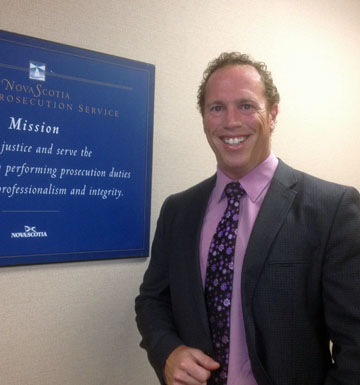Crown lawyers are not getting the support they need to keep up with demand for their services, says the new president of the Canadian Association of Crown Counsel.

Rick Woodburn, who was elected to the office in May at the CACC’s annual meeting in Quebec City, says the federal government’s omnibus crime bill, which created new mandatory minimum sentences and eliminated conditional for certain offences, will have a significant effect on many of his roughly 6,000 members.
“It increases the amount of trials that are going to go forward, which puts pressures on Crowns across country.” Woodburn tells Legal Feeds.
Another proposed bill, C-26, the “citizen’s arrest and self-defence act,” will also have a major impact
“You can’t expect to fundamentally change a law like that, which is used every day in court and has been around for more than 100 years, and not expect the workload to get bigger,” says Woodburn. “But there’s no infrastructure being put in place to handle the extra work.”
When funding injections do come from government, he says they fall short. For example, when the Ontario government added 40 new Crown attorneys in 2008, Woodburn says the CACC was expecting 80.
In any case, budget cuts to justice departments across Canada mean layoffs are inevitable, Woodburn says. CACC members who work on the less visible civil side, where lawyers draft legislation and carry out litigation on behalf of the government, are particularly vulnerable he says, citing 95 federal government lawyers recently
put on notice that their jobs could be cut.
“They’re stealing from Peter to pay Paul,” says Woodburn. “It’s like a kid’s game of Jenga, where you pull blocks out from the bottom and put them on top. Eventually the whole thing falls over.”
The Halifax lawyer, who took over the reins at the CACC from Toronto prosecutor Jamie Chaffe, has been a provincial prosecutor in Nova Scotia since 2001, and has headed the Nova Scotia Crown Attorneys Association since 2003. Woodburn will also continue in that position while the association finalizes a collective agreement with Nova Scotia, having been without a contract since April 2009. Once bargaining is complete, Stephen Drake will take over as president of the NSCAA.
Update: Photo added 11:42 a.m. June 7.

 Rick Woodburn, who was elected to the office in May at the CACC’s annual meeting in Quebec City, says the federal government’s omnibus crime bill, which created new mandatory minimum sentences and eliminated conditional for certain offences, will have a significant effect on many of his roughly 6,000 members.
Rick Woodburn, who was elected to the office in May at the CACC’s annual meeting in Quebec City, says the federal government’s omnibus crime bill, which created new mandatory minimum sentences and eliminated conditional for certain offences, will have a significant effect on many of his roughly 6,000 members.